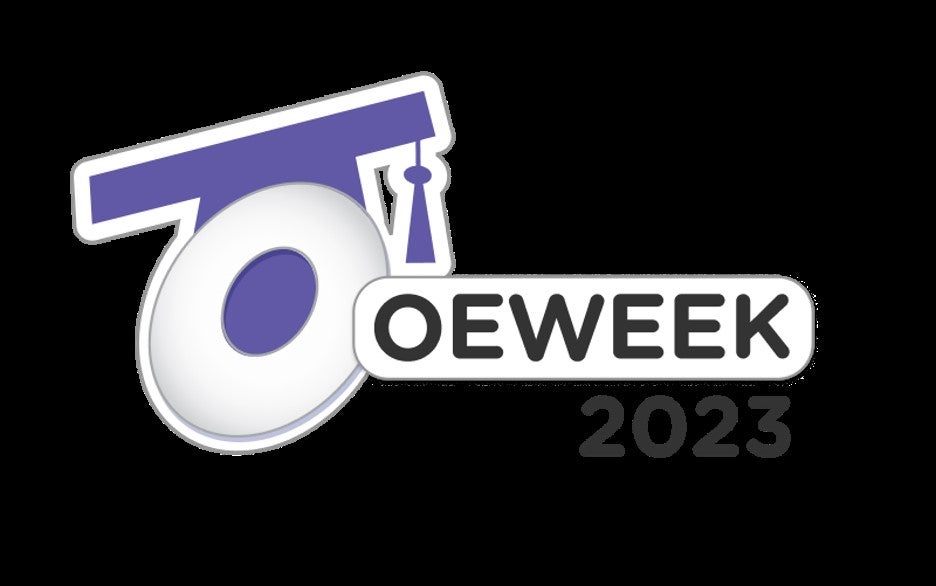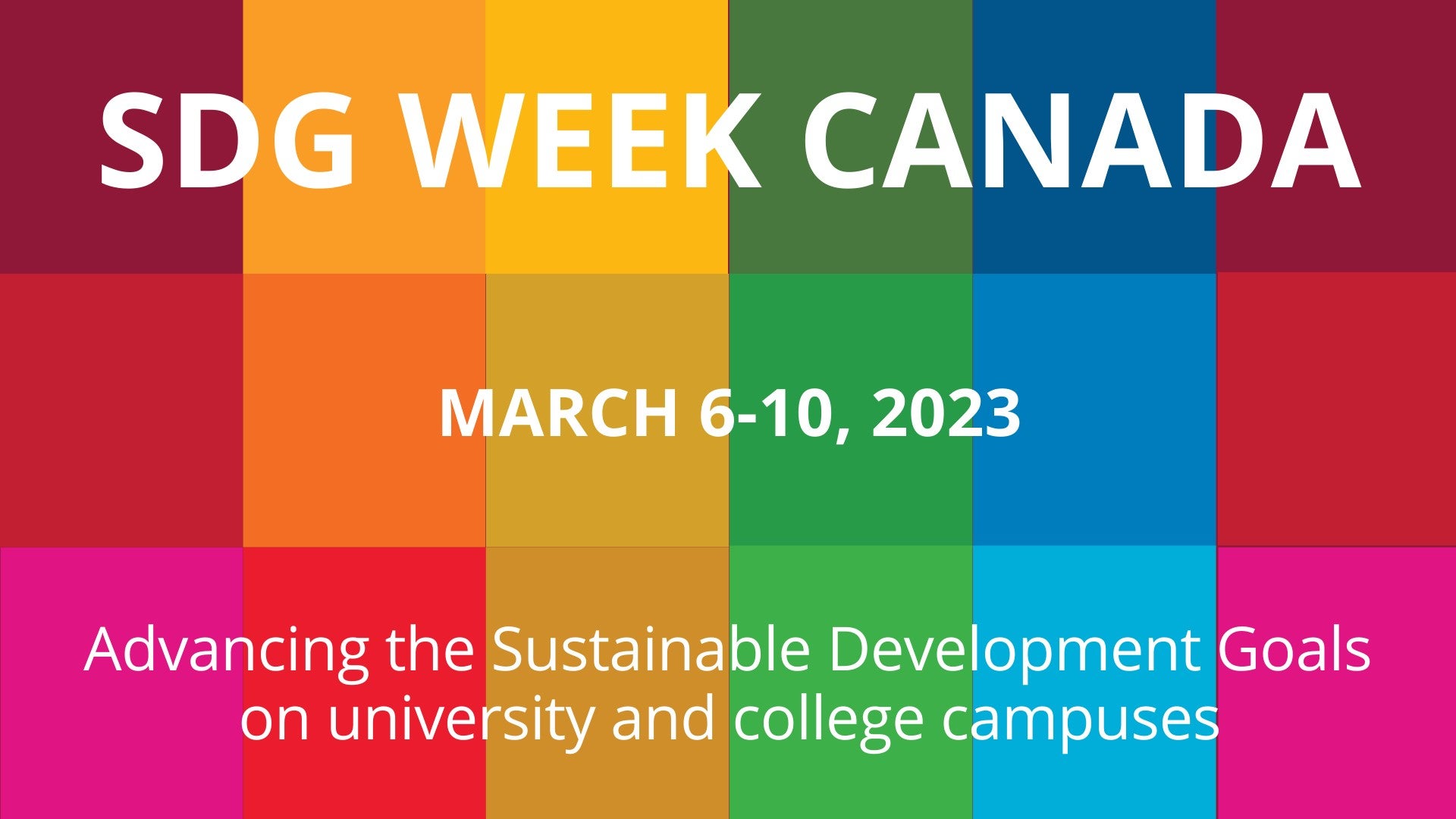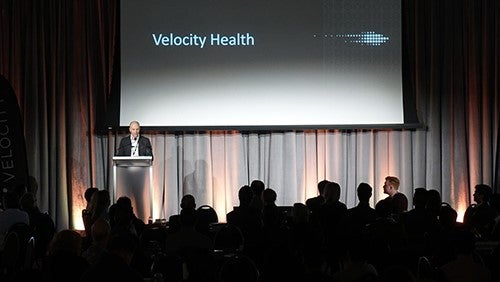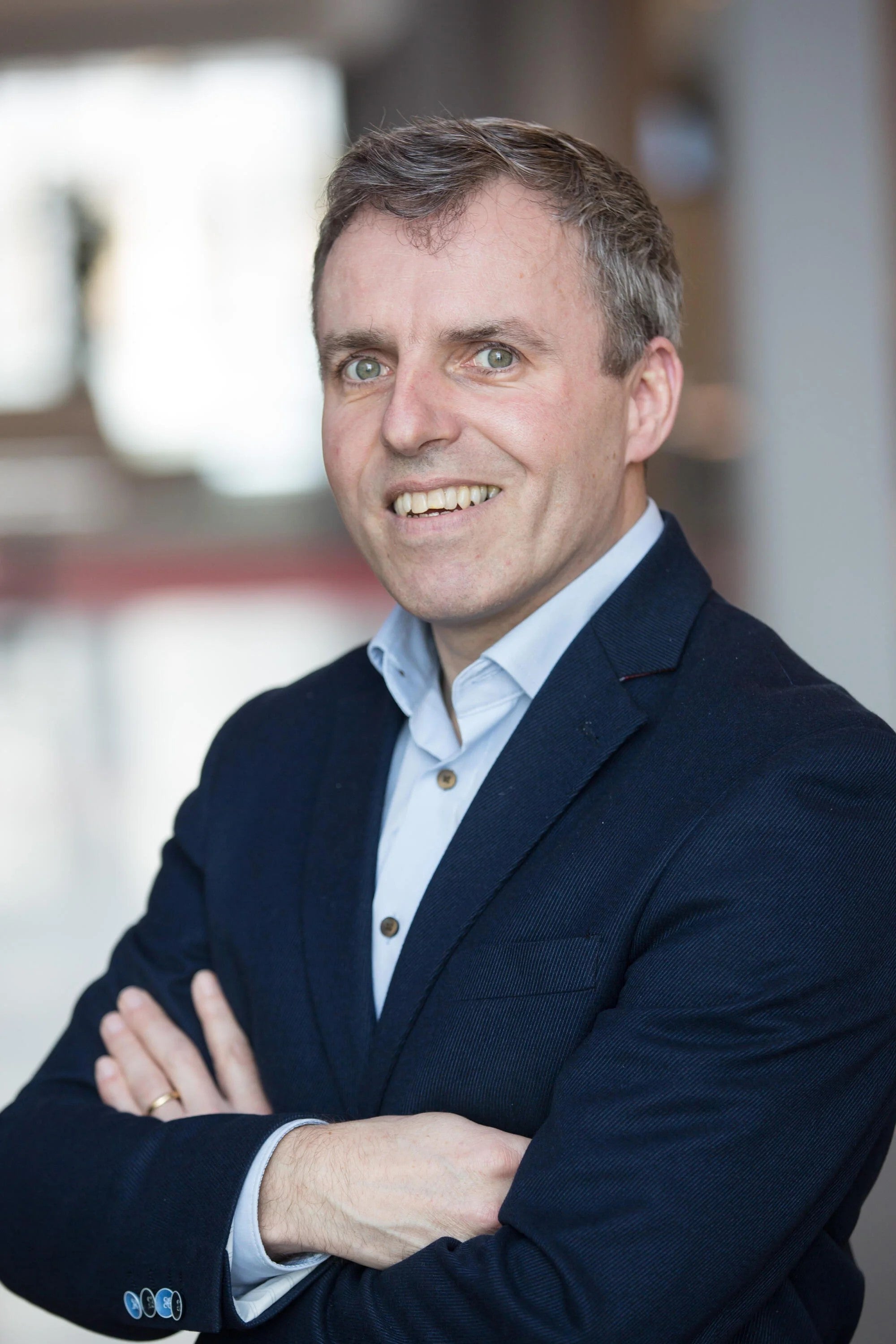Editor:
Brandon Sweet
University Communications
bulletin@uwaterloo.ca
Welcome to Open Education Week

This article is one of a series celebrating Open Education Week, brought to you by the Open Scholarship Committee.
This week the University of Waterloo joins institutions around the world in celebrating Open Education Week.
The Open Scholarship Committee invites members of the Waterloo community and the general public to a number of virtual events. See Open Education Week 2023 for the schedule.
Join us to find out about open educational resources (OER) being developed on campus and to learn about a recent donation from Staebler Insurance to support the creation of such resources.
Showcase
Presentations that showcase Waterloo OER include the following:
- Allana Cattapan (Political Science)
- Barb Bloemhof (Economics)
- Elena Neiterman (Public Health Sciences)
- John Johnston (Earth and Environmental Sciences)
- James Skidmore (Germanic & Slavic Studies)
- Kim Cuddington (Biology)
Staebler Insurance OER Fellows Grant Accepting Applications
The Library is excited to be accepting applications for this year’s Staebler Insurance OER Fellows Grant. The grant will provide up to $100,000 (up to $20,000 annually) between 2023 and 2028. Grants can be used to design and create new resources, adapt existing resources, or develop resources that mix original and adapted content. Applications are due April 3, 2023. For more information, see Staebler Insurance OER Fellows Grant or join today’s information session (see schedule).
Additional events
Other programming at Waterloo this week includes presentations that explore the “how” of OER and a series of Daily Bulletin articles. Topics include extended reality, Pressbooks, accessibility, copyright and licensing, Traditional Knowledge Labels, and getting help at Waterloo (see schedule).
Many other Canadian institutions have scheduled events. A list is available at Open Education Week 2023: External Events.
Open Education Week is a global event designed to raise awareness about strategies, tools, and resources that benefit open learning. For more information about OE Week and OE Global, see the Open Education Global website.
SDG Week Canada begins today

A message from the Sustainability Office
March 6 marks the start of SDG Week Canada, a week-long national collaboration led by the Sustainability Hub at UBC, SDSN Canada, and Colleges and Institutes Canada (CiCan). Campuses across the country are leading programming and communications to raise awareness about the UN's Sustainable Development Goals (SDGs), spark conversations about opportunities for collaboration within and across campus borders, and accelerate progress on the SDGs at our institutions.
Throughout the week, many groups across campus will be leading activities to help our campus community learn more about engaging with the SDGs in their work and studies. Some examples include:
Panel: Accelerating Progress Through Collaboration (Tues, Mar 7 | 1-2:30pm (EST) | Virtual)
- Hear from leaders from the Office of the Equity, Diversity, Inclusion & Anti-Racism, Office of Indigenous Relations, Campus Wellness and the Sustainability Office on connections and collaboration opportunities across their four portfolios.
Teaching the SDGs: Innovations in teaching about the Sustainable Development Goals (Tues, Mar 7 | 2-3pm (EST) | Virtual)
- This panel will explore innovation in the context of teaching the SDGs to help improve learning outcomes in universities and colleges across Canada, led by SDSN Canada and the Sustainability Hub at UBC.
Panel: Sustainability Education at the Post-Secondary Level(Fri, Mar 10 | 11:15am-1pm (EST) | Virtual)
- Join the Sustainability Literacy Initiative for a discussion on the importance of post-secondary sustainability education in creating a resilient workforce, in partnership with SDSN Canada and Environment and Climate Change Canada (ECCC).
We invite you to check out the full calendar of events to learn more and register.
Velocity Health launches at Waterloo

By Jon Parsons. This article originally appeared on Waterloo News.
Waterloo’s globally recognized startup program Velocity launched an initiative that aims to help new companies in the health-tech sector access funding and get products and services in the hands of those who need them.
The initiative – Velocity Health – was officially launched at a kickoff event at the University of Waterloo. The latest stream of the Velocity suite of platforms was created to address the key challenges health-tech startups face.
“I’m inspired to see and hear how Velocity Health is taking shape,” said Dr. Vivek Goel, president and vice-chancellor of the University of Waterloo. “Velocity is helping to expand the impact and scope of the University of Waterloo and positioning our region as a global leader in addressing future health challenges.”
Partners involved with Velocity Health alongside UWaterloo include the Grand River Hospital Foundation, the Accelerating Clinical Trials Consortium at McMaster University, the IMPACT program at the University of Calgary, the Medical Innovation Xchange, the University of Western Ontario and the MaRS Discovery District.
Velocity Health is funded in part by the Government of Canada through the Federal Economic Development Agency for Southern Ontario (FedDev Ontario) and supported by the City of Kitchener.
These partnerships and Velocity’s support will improve Canadians’ quality of care, advance Canadian entrepreneurship globally and connect and grow Canada’s innovation economy.
Continue reading on Waterloo News.
Health care accessible to all: a public lecture
 Dr. Jan Jukema, a professor at Saxion University of Applied Sciences, Netherlands, will address how citizens, researchers, professionals, government and organizations can collaborate for better access to health care for vulnerable people in this public lecture.
Dr. Jan Jukema, a professor at Saxion University of Applied Sciences, Netherlands, will address how citizens, researchers, professionals, government and organizations can collaborate for better access to health care for vulnerable people in this public lecture.
We are facing complex challenges related to climate, energy, demographics, workforce, equitable distribution of resources and access to health care. These challenges are "wicked" in nature; there is no single solution to solve the problem.
This is especially the case with persisting challenges around increasing access to health care for citizens with lower digital and health literacy skills. It requires more than just the involvement of researchers and small and medium-sized enterprises. Given the urgency and complexity of the challenge, more and different people are needed, namely citizens, the government and health-care professionals.
With each group having their own view on the matter, collaborating ensures the combining of different and rich expertise and experiences, but also concerns and aspirations. Together they can make a difference for better access to health care for vulnerable people. This can be achieved through use of particular enabling methodologies such as co-design, co-production, citizen science and learning communities.
The lecture will be hosted both in person at the University of Waterloo and streamed online. In-person attendees are invited to stay for a reception following the talk.
See the event website for details and to register before March 7.
Understanding the true meaning of excellence
By Tracelyn Cornelius. This article originally appeared in The Catalyst.

We are nearing the end of Black History month 2023, celebrated under the theme “Ours to tell”. According to the government of Canada, this theme represents an opportunity to not only engage in open dialogue, but to also commit to learning more about the stories of Black communities in Canada - their histories, successes, sacrifices and triumphs.
Celebrating Black excellence is a way to recognize and appreciate extraordinary achievements or performances, and to motivate and encourage others to strive for greater success. Nevertheless, some critics of the Black excellence narrative suggest that it can create a sense of competition amongst Black people, resulting in feelings of superiority and marginalization. Others argue that society's relentless pursuit excellence can sometimes be damaging to the mental health and well-being of some people. This pressure to be exceptional can lead to feelings of guilt, inadequacy and failure, particularly among the younger generation. Further, an obsession with excellence can lead to a culture of exclusion and further divide the community, rather than unite it.
I asked my son, a Black young adult, to share his perspective. He believes that while Black excellence is a great way to recognize the achievements of Black people and to give them the recognition they duly deserve, it pressures individuals to achieve similar, often unrealistic standards, regardless of individual circumstances. He describes the pressure he feels to conform to society’s standard of what a good Black man should be.
He added that Black excellence also reinforces stereotypes and implies that Black people are only capable of achieving excellence in certain fields, like sports and entertainment. He further explained that quite often he feels that he must constantly prove his worth as a member of the Black community. He says, unlike him, his white friends are not burdened by standards of excellence, they are allowed to simply exist.
His comments were profound, but true. Much of what he said, feeds into the myth of meritocracy, the belief that success is based solely on individual merit, with no barriers to social mobility. Meritocracy is often used to defend the idea of a fair and equal society, where everyone has an equal opportunity to succeed, ignoring the reality that access to resources, privilege, and other forms of social capital can give certain individuals an advantage over others.
I also reached out to Dr. Christopher Taylor, associate vice-president, Equity, Diversity, Inclusion and Anti-racism for expert advice on this discourse. He said, “Why do we need to even use the term Black excellence? By using the term, aren't we simply reinforcing the idea of excellence? “What about celebrating Black joy, Black liberty, Black freedom, or even Black existence?”
Dr. Taylor believes that Black excellence can be damaging, especially when it is used to push a specific narrative about what Black people should be or do, which can perpetuate stress, anxiety, unhealthy competition and feelings of self-doubt and inadequacy.
After carefully considering both sides of the debate, I personally do not support retiring the term, because of it may cause a form of pressure that can be harmful to Black people. I believe that excellence comes in different forms and that everyone should be celebrated for their unique achievements and contributions. As we strive to create more inclusive and supportive environments, academic achievement, wealth and career success cannot be the sole metrics for measuring excellence. Other forms of success, such as emotional, spiritual and physical well-being should also be celebrated and embraced as unique forms of excellence.
As denoted in the Black History Month theme this year, the story is “Ours To Tell.” We as Black people need to take control of the narrative and build awareness that achieving personal goals and accomplishments, and simply existing in a world plagued with discrimination and inequities are the sincerest forms of excellence. We must remember that Black excellence is not a standard to be met, but an opportunity to celebrate our individual and collective successes, both big and small.
Monday's notes
March is Nutrition Month. This month is a time to celebrate the diverse field of nutrition and the many ways that Registered Dietitians (RDs) strive to help Canadians understand the connections between food, nutrition, and health. The theme of this year’s campaign is “Unlocking the potential of food: Find a Dietitian.”
As RDs, we use the science of nutrition to provide personalized guidance to meet client needs and goals. While many Canadians view RDs as trusted health care professionals, there can be barriers to accessing dietitian services, such as where and how to go about seeking out this support. This is why RDs across the country are putting a spotlight on the many ways people can unlock the potential of food and find a dietitian this Nutrition Month.
To get the Nutrition Month festivities started, let’s hone in on some introductory information about RD’s and what they can offer.
Did you know?
- RDs are regulated healthcare professionals with rigorous academic and practical training in nutrition. This includes the completion of an accredited 4-year undergraduate degree in nutrition, extensive supervised practical training, and the successful completion of a national licensing exam
- RDs are registered with and are accountable to a regulatory body at the provincial level. This offers protection to the public and ensures that RDs offer safe, evidence-based advice and recommendations – no fads or gimmicks!
- The terms ‘registered dietitian’ and ‘RD’ are protected titles. Use of these titles is restricted by law in Ontario for use only by registered, practicing RDs
- RDs participate in mandatory quality assurance processes, jurisprudence and ethics education, and professional development to ensure they are up to date on the evolving world of nutrition science
- RDs offer nutrition advice and expertise to help manage nutrition for health promotion, disease prevention, and treatment of acute and chronic diseases
- RDs work in a multitude of settings – from hospitals, health clinics and centres, to academia and research, to industry. More info on this to come on March 15th.
Stay tuned for more weekly Nutrition Month content throughout the month of March from Courtney Wilson, MScFN RD, Registered Dietitian, Health Services, Campus Wellness.
The campaign for Staff Representative on the Board of Governors is now open. The candidates are:
- Tanya Andrews
- Bonnie Bishop
- Robert Patrick Bruce
- Alana Guevara
- Frances Hannigan
- Agata Jagielska
- Ivan Milenovic
- Jeremy Steffler
- Jennisha Wilson
Please visit the Secretariat website to read the candidates’ statements. Campaign period is eight business days, and elections will start on Monday 20 March 2023.
The voting period for regular full-time staff (non-union and OPSEU) is planned for Monday 20 March to Friday 24 March 2023 by electronic ballot. Each regular full-time staff member will receive an email with a direct link to the ballot.
The voting period for CUPE full-time staff is planned for Monday 20 March to Friday 31 2023 by paper ballot. Each regular full-time union member will be sent a paper ballot through campus mail.
Link of the day
25 years ago: The Big Lebowski
When and Where to get support
Students can visit the Student Success Office online for supports including academic development, international student resources, immigration consulting, leadership development, exchange and study abroad, and opportunities to get involved.
Instructors looking for targeted support for developing online components for blended learning courses, transitioning remote to fully online courses, revising current online courses, and more please visit Agile Development | Centre for Extended Learning | University of Waterloo (uwaterloo.ca).
Faculty, staff, post-doc and graduate student instructors can find upcoming teaching and learning workshops, self-directed modules and recordings of previous events on Centre for Teaching Excellence Workshops and Events page.
Instructors can access the EdTech Hub to find support on Waterloo’s centrally supported EdTech tools. The Hub is supported by members of IST’s Instructional Technologies and Media Services, Centre for Teaching Excellence, Centre for Extended Learning and subject matter experts from other campus areas.
Supports are available for employees returning to campus. Visit IST’s Hybrid Work and Technology guidelines and workplace protocols to assist with the transition.
Students with permanent, temporary and suspected disabilities and disabling conditions (medical conditions, injuries, or trauma from discrimination, violence, or oppression) can register with AccessAbility Services for academic accommodations (classroom accommodations, testing accommodations, milestone accommodations).
Instructors can visit AccessAbility Services' Faculty and Staff web page for information about the Instructor/Faculty role in the accommodation process. Instructors/Faculty members are legally required to accommodate students with disabilities. AccessAbility Services (AAS) is here to help you understand your obligations, and to offer services and resources to help you facilitate accommodations.
Did you know that the Writing and Communication Centre offers many in-person and virtual services to support you with any writing or communication project? This term we've added The Write Spot: a new student space in South Campus hall, complete with bookable workspaces, drop-ins with our peer tutors, and free coffee and tea. We also have one-to-one appointments with our writing and communication advisors and peer tutors, email tutoring for grads and undergrads, drop-ins at Dana Porter Library, online workshops, writing groups, English conversation practice, and even custom in-class workshops. For any communication project, the Writing and Communication Centre is here to support you.
Research Ethics: Find yourself with an ethical question, unsure if your work requires an ethics review, or need advice about putting together a research ethics application? Reach out to one of our friendly staff by booking a consultation or email us with your questions.
Co-op students can get help finding a job and find supports to successfully work remotely, develop new skills, access wellness and career information, and contact a co-op or career advisor.
The Centre for Career Action (CCA) has services and programs to support undergrads, grad students, postdocs, alumni, and employees in figuring out what they value, what they’re good at, and how to access meaningful work, co-op, volunteer, or graduate/professional school opportunities. Questions about CCA's services? Live chat, call 519-888-4047, or stop by our front desk in the Tatham Centre 8:30 a.m. to 4:30 p.m., Monday to Friday.
Drop-in to in-person Warrior Study Halls on Thursdays from 5:00 p.m. to 6:30 p.m. in DC and DP. Join a Peer Success Coach to set goals and work independently or in groups each week.
Renison's English Language Institute continues to offer virtual events and workshops to help students practice their English language skills.
If you feel overwhelmed or anxious and need to talk to somebody, please contact the University’s Campus Wellness services, either Health Services or Counselling Services. You can also contact the University's Centre for Mental Health Research and Treatment. Good2Talk is a post-secondary student helpline available to all students.
The Library is here to help, both in person and online. Our spaces are open for access to book stacks, study spaces, computers/printers, and the IST Help Desk. For in-depth support, meet one-to-one with Librarians, Special Collections & Archives and Geospatial Centre staff. Visit the Library’s home page to access our online resources for anywhere, anytime learning and research.
The Faculty Association of the University of Waterloo (FAUW) continues to advocate for its members. Check out the FAUW blog for more information.
The University of Waterloo Staff Association (UWSA) continues to advocate for its members. Check out the UWSA blog for more information.
The Office of Equity, Diversity, Inclusion & Anti-Racism (EDI-R) works with students, faculty and staff across campus to advance equity and Anti-racism through evidence-based policies, practices and programs. If you have a concern related to Anti-racism and/or equity, please complete our intake form.
The Sexual Violence Prevention and Response Office (SVPRO) supports all members of the University of Waterloo campus community who have experienced, or been impacted, by sexual violence. This includes all students, staff, faculty and visitors on the main campus, the satellite campuses, and at the affiliated and federated Waterloo Institutes and Colleges. For support, email: svpro@uwaterloo.ca or visit the SVPRO website.
The Office of Indigenous Relations is a central hub that provides guidance, support, and resources to all Indigenous and non-Indigenous campus community members and oversees the University's Indigenization strategy.
The Waterloo Indigenous Student Centre, based at United College, provides support and resources for Indigenous students, and educational outreach programs for the broader community, including lectures, and events.
WUSA supports for students:
Peer support - MATES, Glow Centre, RAISE, Women’s Centre - Click on one of the links to book an appointment either in person or online for the term.
Food Support Service food hampers are currently available from the Turnkey Desk 24/7 in the Student Life Centre. Drop-off locations are also open again in SLC, DC, DP, SCH, and all residences.
Co-op Connection all available online.
Centre for Academic Policy Support - CAPS is here to assist Waterloo undergraduates throughout their experience in navigating academic policy in the instances of filing petitions, grievances and appeals. Please contact them at caps@wusa.ca.
WUSA Student Legal Protection Program - Seeking legal counsel can be intimidating, especially if it’s your first time facing a legal issue. The legal assistance helpline provides quick access to legal advice in any area of law, including criminal. Just call 1-833-202-4571.
Empower Me is a confidential mental health and wellness service that connects students with qualified counsellors 24/7. They can be reached at 1-833-628-5589.
GSA-UW supports for graduate students:
The Graduate Student Association (GSA-UW) supports students’ academic and social experience and promotes their well-being.
Advising and Support - The GSA advises graduate students experiencing challenges and can help with navigating university policies & filing a grievance, appeal, or petition.
Mental Health covered by the Health Plan - The GSA Health Plan now has an 80 per cent coverage rate (up to $800/year) for Mental Health Practitioners. Your plan includes coverage for psychologists, registered social workers, psychotherapists, and clinical counselors.
Dental Care - The GSA Dental Plan covers 60 to 70 per cent of your dental costs and by visiting dental professionals who are members of the Studentcare Networks, you can receive an additional 20 to 30 per cent coverage.
Student Legal Protection Program - Your GSA fees give you access to unlimited legal advice, accessible via a toll-free helpline: +1-833-202-4571. This advice covers topics including housing disputes, employment disputes, and disputes with an academic institution.
The Graduate House: Open Monday to Tuesday 11:30 a.m. to 7:00 p.m. and Wednesday to Friday 11:30 a.m. to 9:00 p.m. We’re open to all students, faculty, staff, and community members. The Graduate House is a community space run by the GSA-UW. We’re adding new items to the menu. Graduate students who paid their fees can get discounts and free coffee.
When and Where
Fitness and Personal Training - Registrations opened January 5 this winter with Personal Training and Small Group Training as well as a Free Warrior Workout Program.
Student Health Pharmacy in the basement of the Student Life Centre is now offering Covid booster shots (Pfizer and Moderna) and flu shots. Call 519-746-4500 or extension 33784 for an appointment. Walk-ins always welcome.
Pathways for addressing (with care) Disclosures of Racism, Wednesday, March 8, 9:00 a.m. to 12 noon, online.
CBB 2023 Conference, “Waterloo for Health, Technology and Society,” Wednesday, March 8 and Thursday, March 9, 1:00 p.m. to 4:00 p.m., SLC 2144. Registration closes Tuesday, March 7.
Pivot-RP virtual training workshop for Faculty and graduate students, Thursday, March 9 from from 1:30 – 2:30 p.m., via MS Teams.
MSW10: Collective Care, Solidarity & Justice Doing, Wednesday, March 8, 12:30 p.m., online.
In Health Care Accessible to All, Dr. Jan Jukema (Saxion University of Applied Sciences, Netherlands) will address how citizens, researchers, professionals, government and organizations can collaborate for better access to health care for vulnerable people. Thursday, March 9, 12:00 p.m. to 1:00 p.m., hybrid format.
Things we want you to Know: A Panel Discussion about the experiences of Black, Indigenous, and Racialized Students at Renison, Thursday, March 9, 11:00 a.m. to 1:00 p.m., REN 3106.
You Don't Know What You Don't Know Part 1, a two-part workshop that journeys through First Nations, Inuit, and Metis relations with settlers. Friday, March 10, 9:00 a.m. to 12:00 p.m., online.
No Visible Trauma: Film Discussion and Q&A, Friday, March 10, 12:10 p.m. to 1:00 p.m., online.
Information session on NSERC programs (for faculty), Friday, March 10, 1:15 p.m. to 2:15 p.m., East Campus 5, Enterprise Theatre.